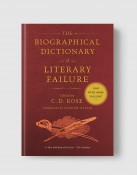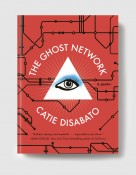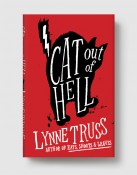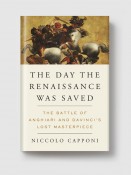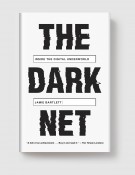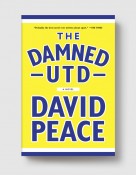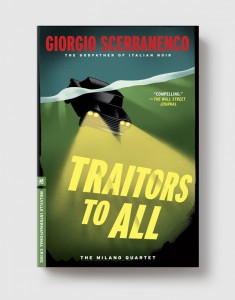
List price: $16.95
- Pages256
- ISBN9781612193663
- Publication dateJune, 2014
- Categories
- Booksellers
- Media
- Academics & Librarians
Traitors to All
A Duca Lamberti Noir
Giorgio Scerbanenco
Translated by Howard Curtis
Part of Melville International Crime
From the godfather of Italian noir.
One balmy spring evening on the outskirts of Milan, a Fiat with two passengers plunges into a canal. At first, their deaths are registered as an accident.
But Duca Lamberti, the doctor-turned-detective of Giorgio Scerbanenco’s legendary series, suspects there’s more to it than that. Because that same canal has been the scene of other deaths, and all the incidents have one man in common: a lawyer with a murky past stretching all the way back to World War II—a man who, in fact, once shared a prison cell with Lamberti.
Winner of the most prestigious European crime prize on its original publication in 1966, Traitors to All is classic noir by one of the greatest writers of the genre—a book that lays bare the connections between Milan’s troubled history during the war and its swinging sixties affluence, as well as an utterly absorbing tale of betrayal and revenge.
“Beautifully bleak… This is dark stuff, but so well rendered and conceived by Scerbanenco that it’s also entirely satisfying. A superior thriller.” —Complete Review
“Giorgio Scerbanenco’s reissued 1966 crime noir is a perfect beach read, and cooler than a chilled Negroni.” —Barnes & Noble Review
“A gem . . . A vivid portrait of Milan’s seamy underbelly . . . Scerbanenco reveals Duca Lamberti to us; in doing so, he also unveils the Italian hardboiled hero. —Crime Fiction Lover
“Scerbanenco’s dark, moody novels have much in common with the darkest of Scandinavian crime fiction . . . This forgotten noir classic from 1966 is finally available in translation. That’s good news!” —Library Journal
“There is courage in his books, the courage to call things by their name . . . No filters shield you from the reality, which is as desperate, fierce, and stark as in the best novels of James Ellroy or Jim Thompson.” —Carlo Lucarelli
“[Scerbanenco can be] as dark as Leonardo Sciascia, as deadpan realistic as Maj Sjöwall and Per Wahlöö, as probing in his observation of people as Simenon, as humane as Camilleri, as noir as Manchette . . . but with a dark, dark humor all his own.” —Detectives Beyond Borders
“The Duca Lamberti novels are world-class noir, and their publication in English is long, long overdue.” —The Complete Review
“Compelling.” —The Wall Street Journal
“A noir writer richly deserving rediscovery.” —Publishers Weekly

